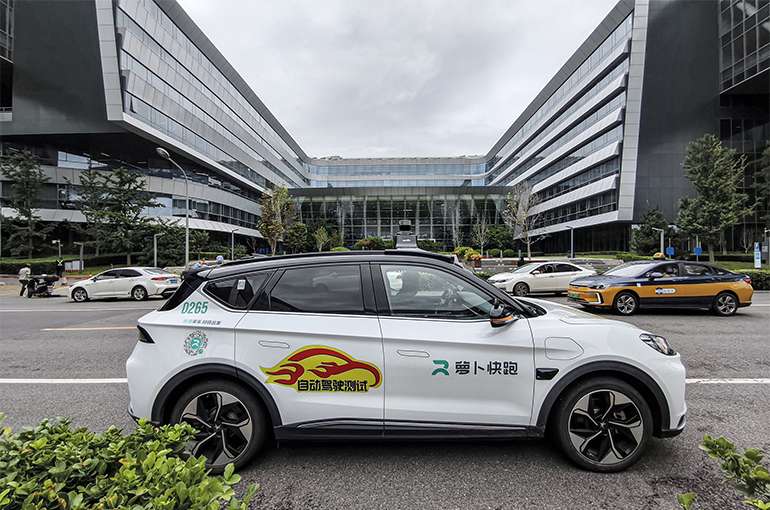 Baidu’s Apollo Go to Start Robotaxi Road Tests in Hong Kong by Year-End, Sources Say
Baidu’s Apollo Go to Start Robotaxi Road Tests in Hong Kong by Year-End, Sources Say(Yicai) Nov. 27 -- Baidu plans to begin road testing its robotaxi service Apollo Go in designated areas of Hong Kong by the end of this year, marking a key step in its global expansion, according to sources familiar with the matter.
Baidu has already started hiring "artificial intelligence driving training specialists" in Hong Kong, the people told Yicai yesterday. Applicants must have had a valid driver's license for at least five years and have more than three years of driving experience, they noted.
The specialists will be mainly responsible for tracking and collecting data from the robotaxis, recording and reporting problems, and handling emergencies, the sources said.
Beijing-based Baidu has not yet replied to Yicai's request for comment.
The company, a leader in China’s autonomous driving sector, has been actively expanding its Apollo Go robotaxi service. It is in trial operations in 11 cities across the Chinese mainland, with more than eight million rides completed. Expanding to Hong Kong represents another milestone in testing the technology.
In the first trial phase, one robotaxi with an operator onboard will be running in the Hong Kong International Airport area during non-peak hours, the people said, adding that only after obtaining the permission of the transport department can the service enter the next testing stage.
Hong Kong's streets have some significant differences from those in the Chinese mainland, including vehicles driving on the left side, many relatively narrower roads with heavy traffic, and a complex system of traffic signals and signs, a professional in self-driving tech told Yicai.
These factors pose a greater challenge for autonomous vehicle perception, decision-making, and control, the person noted.
Baidu previously revealed detailed road test plans at a council meeting in Hong Kong's Outlying Islands district, including a proposed trial route starting from the airport parking lot via several streets and back. The tests were scheduled for 10 a.m. to 6 p.m. and 1 a.m. to 5 a.m.
Editors: Tang Shihua, Martin Kadiev